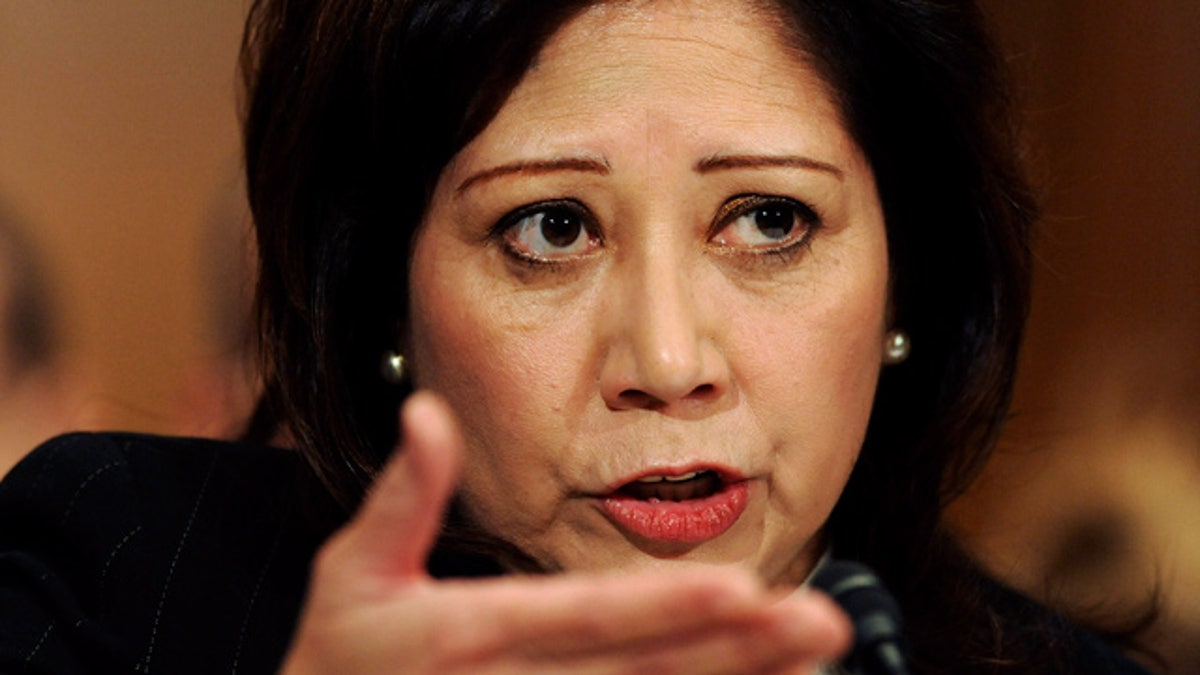
(Reuters)
Labor Secretary Hilda Solis has overseen a number of signed agreements between U.S. agencies and foreign officials pledging to give migrant workers the full protections of U.S. workplace laws -- regardless of their legal status -- and she says her department will uphold them.
"No matter how you got here or how long you plan to stay, you have certain rights," Solis said at an event unveiling the latest agreements on Monday in Washington.
Solis says foreign workers need to know their rights, so that they can lodge complaints without fear that they will be fired or deported. She believes the signed agreements with countries like El Salvador and Mexico will serve to "remove those fears."
Critics of the move say the policy flies in the face of U.S. laws on both immigration and labor, and find the pledges especially worrisome in a time of high unemployment.
"Obviously everyone wants workers protected in the workplace, that's not the issue," said Phil Kent, national spokesman for Americans for Immigration Control. "The problem is the bending over backwards to help and promote black market labor."
Solis defends the agreements, saying that current U.S. law protects all workers.
"Previous administrations, both Republican and Democrat, have held to that, so I'm not doing anything different," she said.
But critics argue that regardless of which party advocates for the written agreements, the policy is wrong. They also note that the Labor Department’s own website states that businesses may only hire workers who are U.S. citizens or those who are in the country legally.
Kent says it's also a slap in the face to immigrants who try to go through proper legal channels for naturalization, saying they must ask themselves whether it’s worth it to immigrate legally.
"Why did I bother to go through six, seven years of this to become a citizen when you have people like Secretary Solis and the Obama administration just thumbing their nose at the law -- and the American worker?" Kent said, describing how legal immigrants may respond.
In addition to the agreements already signed with countries in Central America, Solis says there are also plans to enter into similar partnerships with governments in Southeast Asia and the Caribbean.




